Although pets are ubiquitous around the modern city of Taipei and throughout Taiwan — with over 2.5 million pet cats and dogs accounted for in 2020—best practices for pet owners and anti-cruelty laws are relatively new on the island. For example, Taiwan’s Wildlife Conservation Act (野生動物保育法) was enacted in 1989 to prevent the sale, trade, and display of wild and endangered animals. In 1998, the Animal Protection Act (動物保護法) was passed to set guidelines for pet owners, including penalties for animal abuse, as well as requirements for things like ready access to water and outdoor exercise.
Fortunately, Taiwan’s animal protection laws are continually evolving and setting guidelines for pets and businesses involving animals. Leading the way for the education and enforcement of these laws are the co-founders of Taiwan’s first SPCA (Society for the Prevention of Cruelty to Animals). (Read also: How to Celebrate Earth Day in Taiwan)
TAIWAN’S FIRST SOCIETY FOR THE PREVENTION OF CRUELTY TO ANIMALS
Connie (姜怡如) and Annie Chiang (姜怡帆) are sisters originally from Taiwan who grew up in Vancouver, Canada. Familiar with Canada’s BCSPCA (The British Columbia Society for the Prevention of Cruelty to Animals), the siblings were surprised to find that no such resource existed in Taipei when they moved back to their motherland after college. “Growing up, everyone was familiar with adopting animals from the local SPCA,” says co-founder Connie.

Out of a love for animals, the two sisters, along with their friend and fellow Canadian Beki Hunt, began sheltering strays and rescuing animals with their own resources while simultaneously working full-time jobs. “We all started out as volunteers,” stated Connie. Together, the three animal lovers practiced “Trap- Neuter-Return,” or “TNR” for short, a system for controlling animal population by fixing, vaccinating, and returning stray animals to their territory. (You might also like: 4 Rescue Cat Cafés in Taiwan Cat Lovers Can’t Miss!)
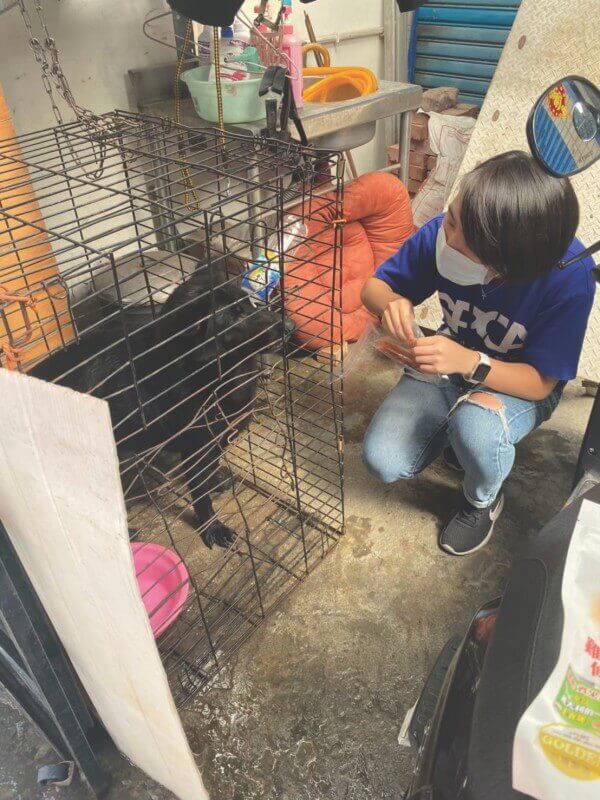
After realizing the limitations of housing animals in their own homes, and that the root of the problem was actually the lack of legislation to protect animals, the three women started the Taiwan Society for Prevention of Cruelty to Animals (TSPCA) (台灣防止虐待動物協會) in Taipei in 2009. In 2010, TSPCA became an official non-profit organization and the island’s first SPCA.
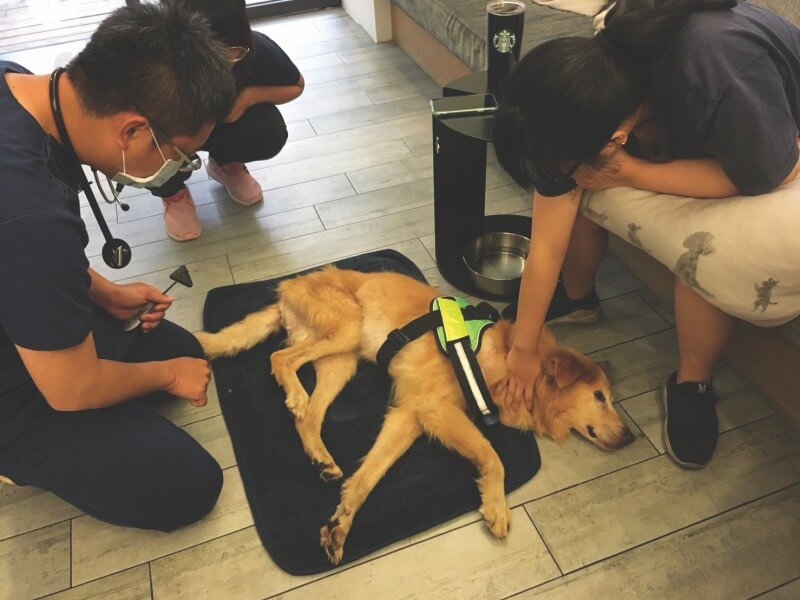
THE TSPCA’S MISSION
SPCAs around the world operate independently from one another, with different boards of directors, organizational structures, and different goals. Taiwan’s SPCA adheres to an underlying philosophy known as the “The Five Freedoms of Animals,” namely the freedom from thirst and hunger, freedom from discomfort, freedom from pain, freedom to express normal behavior, and the freedom from fear and distress. But what makes the TSPCA unique is the founders’ tenacious mission to enforce Taiwan’s anti-cruelty laws with an educational approach.
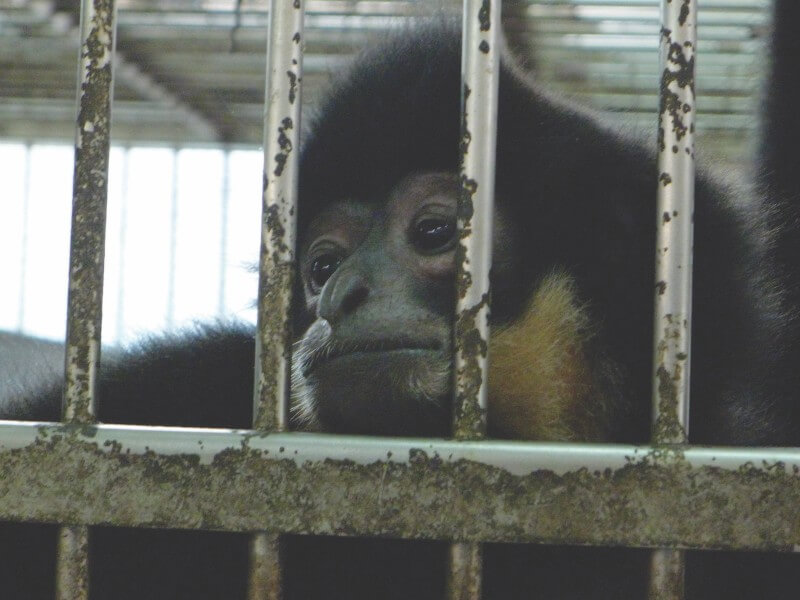
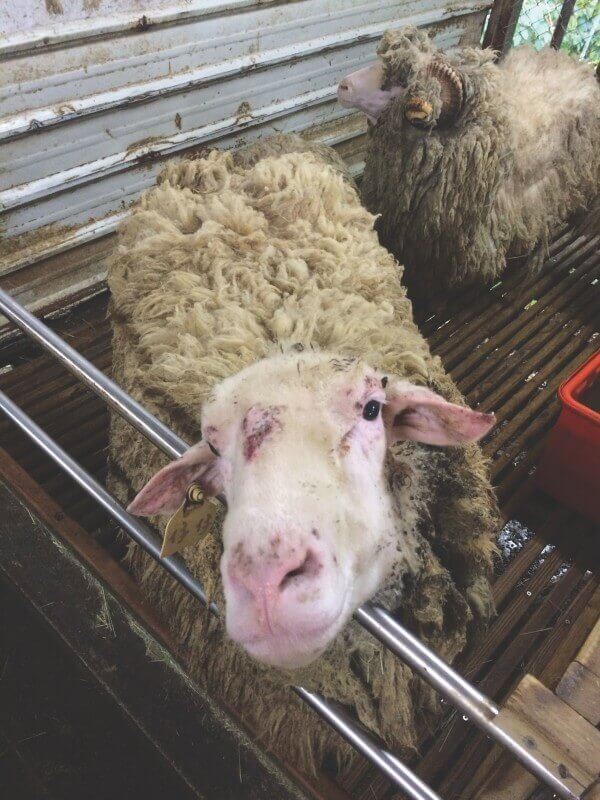
For example, the most egregious case the organization encountered was an endangered Malayan sun bear that had spent almost all of its life in a small cage. After the incident, the small non- profit conducted their own research and uncovered that 22 other endangered and exotic animals were still living as domestic pets across the island in violation of Taiwan’s Wildlife Conservation Act. Upon this discovery, the TSPCA held a press conference in June of 2019 to bring public attention to these violations. As a result of these efforts, all but two of the endangered animals have now been successfully released and rehabilitated at various wildlife sanctuaries throughout Taiwan, while the fearless leaders continue to work tirelessly to rescue the remaining animals. (Read also: In search of the elusive Formosan black bear in Taiwan)
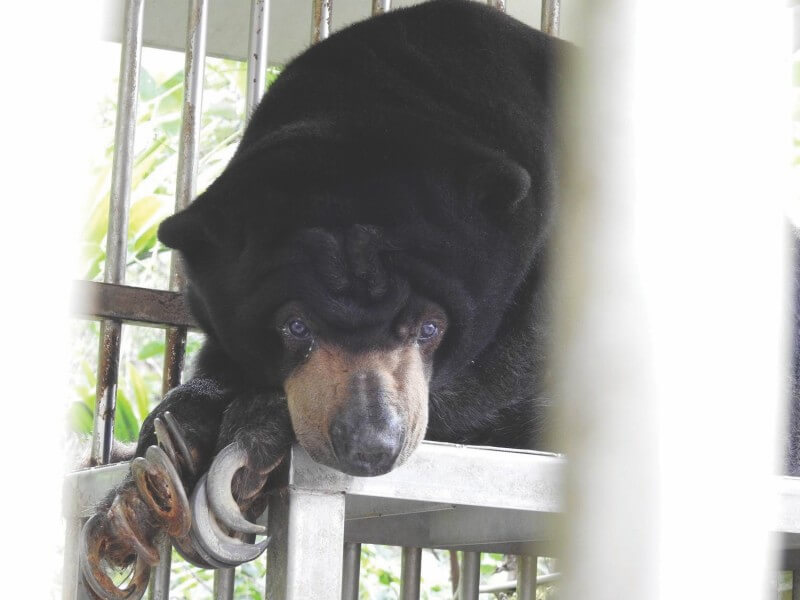
THE TSPCA INVESTIGATION PROCESS
Taiwan’s SPCA also pursues its mission to enforce anti-cruelty laws through a process called a Cruelty Investigation. “It’s not a standard approach for NGOs…no one else does it,” Connie explains about this unique system.
TSPCA’s Cruelty Investigation is usually triggered by people’s complaints regarding a violation of the Animal Protection Act. Although Taipei’s citizens can report acts of animal abuse directly to the local animal protection authority — Taipei City Animal Protection Office (台北市動物保護處), the TSPCA is often the first to receive such complaints from Taipei and beyond due to its reputation throughout the island. As such, the organization provides an online reporting system for members of the public to report a case and provide evidence. Unique to Taiwan’s SPCA, a TSPCA investigation is a practice that combines the non-profit’s educational efforts with the enforcement power of Taiwan’s legal authorities.
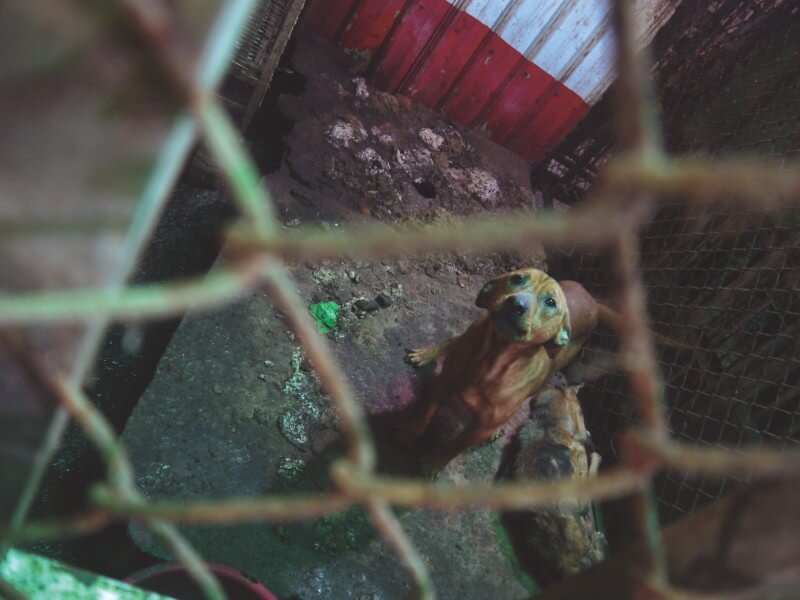
After receiving a complaint, the TSPCA will first determine whether the alleged animal abusers have broken the law. “Our first goal is always to educate,” says Connie. If the TSPCA determines that the Animal Protection Act has been violated, they educate the offenders about the best practices for care of the animals and offer support and assistance. For example, after explaining why a dog needs more exercise, they will offer the owner a free leash. Then, if the abuser does not rectify the situation per the TSPCA’s recommendations, the TSPCA will contact legal authorities.
Next, Taipei’s law enforcement will issue a Compliance Order that allows the offender a chance to change their behavior in order to comply with the Animal Protection Act. Finally, if the offender does not comply with the government orders, a fine ranging from NT$15,000 to NT$75,000 will be issued in accordance with the act. The animal may also be confiscated.
If an animal is confiscated by local authorities, the TSPCA’s work doesn’t stop there. Although the TSPCA lacks an animal shelter of its own, the organization will actively help with the placement of the rescued animals, including coordinating with foster volunteers and pet hotels that provide adoption corners. Sometimes, the founders of the non-profit will even foster the animals themselves if the shelters are full. “It’s no surprise that my sister and I now own six rescue dogs and one rescue bird ourselves,” Connie laughs.
With only four investigators on their team, the TSPCA successfully handles around 600 investigations around the island per year. (You might also like: Travel Deeper to Zhushan: A Eco-friendly Day in Bamboo Mountain)
LOBBYING AND EDUCATION
In addition to these procedural investigations, the TSPCA founders also lobby the government for continual reform to animal protection laws. For example, thanks to their lobbying efforts, clearer pet-rearing requirements and regulations on exhibit animals have been written into law. The TSPCA also successfully lobbied to outlaw the use of animal testing for cosmetics in Taiwan. Similarly, the founders participate in public hearings, seminars, and symposiums, providing research and suggestions for the animal-related issues at hand.

In line with their educational mission, the Chiang sisters created their own curriculum for teaching the public about animal welfare. In collaboration with the Taipei City Animal Protection Office, the TSPCA provides ten schools in Taipei with their curriculum and equips teachers with the materials necessary to teach animal welfare to their students. “It’s been really successful,” Connie said. “We teach teachers how to teach animal welfare to students. One school had 100 teachers show up!” The TSPCA also promotes its educational campaigns via social media and holds pet behavior training for adopters and the general public.
WAYS TO HELP
Foreigners in Taipei can promote animal welfare in the city by serving as foster volunteers for the animals rescued by the TSPCA and Animal Protection Office. “Since we don’t have our own shelter, we are reliant on foster volunteers,” says Connie. For those with limited time or resources, one can sign up with the TSPCA to volunteer at the nearby Ruifang Animal Shelter (瑞芳動物之家), where each month 25 volunteers take dogs on walks, bathe the dogs, and cut their nails. Foreigners in Taipei can also volunteer at public shelters to give the animals an opportunity to get outdoors and socialize with animals and humans alike. (Read more: 6 Cafes to Enjoy Pet Day in Taipei)

Additionally, foreign tourists can contribute to the TSCPA’s cause by volunteering with other animal welfare organizations during their short stay on the island. For example, visitors can volunteer at shelters like The PACK Sanctuary (台灣巴克動物懷善救援協會) or directly with Taipei’s Animal Protection Office.
THE FUTURE OF THE TSPCA
Taiwan’s SPCA is a small but mighty team, leading the island towards a cruelty-free environment for all animals. To further the advancement of safety and well-being for animals, the founders plan to continue researching, campaigning, and lobbying for improvement of animal protection laws and enforcement measures, as well as spreading awareness of an “Adopt, Don’t Shop” mentality throughout Taipei and beyond.
(Words by: Francesca Chang; Photos by: Yi-choon Tang, Taiwan SPCA)
This article is reproduced under the permission of TAIPEI. Original content can be found at the website of Taipei Travel Net (www.travel.taipei/en).












